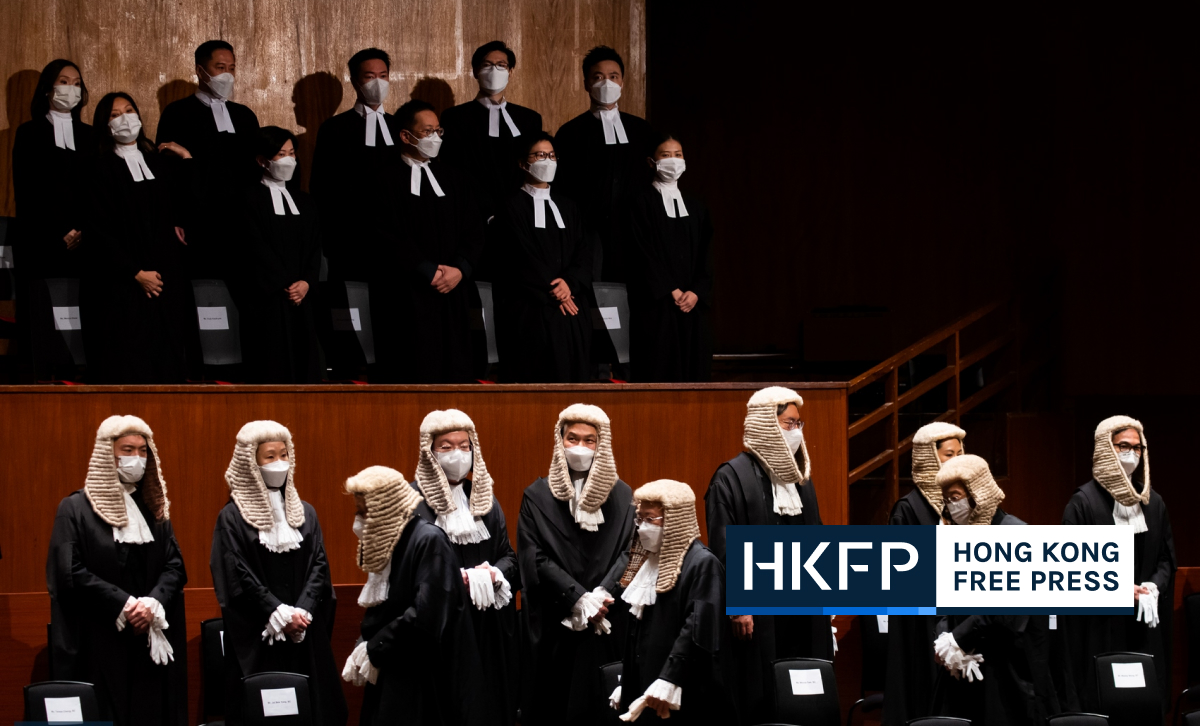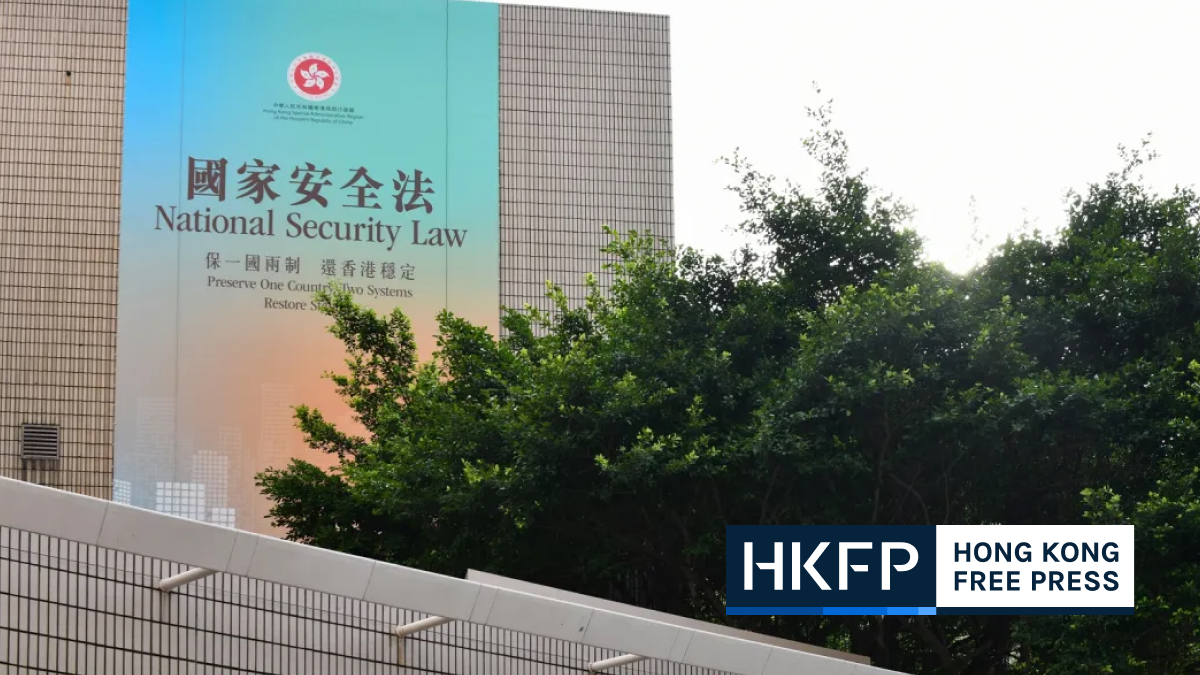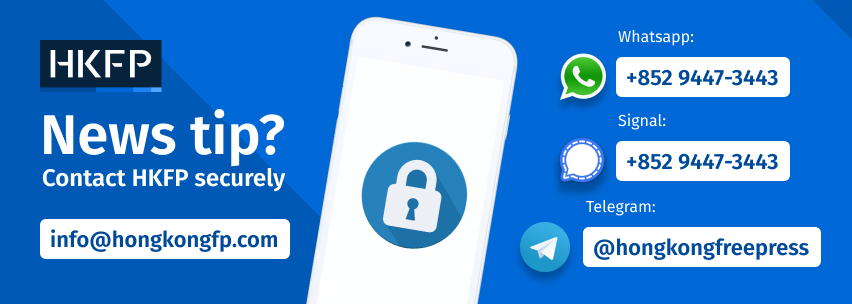As Hong Kong prepares for the 25th anniversary of the Handover, officials have painted a peaceful and prosperous picture of the city – a great comeback following a tumultuous few years, which began with the 2019 protests and unrest, followed by the Covid-19 pandemic. For Ronny Tong, who is about to begin his second term as an executive councillor, the outlook for the city – and for a more democratic form of governance – looks promising.
“[Over] the next 25 years – provided the issue of sovereignty is accepted in Hong Kong and the nation is no longer under threat – I see no reason why Hong Kong cannot revisit the issue of political reform,” Tong told HKFP.

Tong qualified as a barrister in Hong Kong in 1975 and entered politics in the post-colonial era as a pro-democracy lawmaker in 2004. In 2015, he founded centrist think tank and political group Path of Democracy, before becoming a member of the Executive Council, a top-tier team of government advisers, in 2017.

“[A]fter 2019, people say the pendulum has swung a little bit to the extreme. And I think that is understandable. I would hope to see the pendulum swing back a little bit towards the middle, in the next, say, five to 10 years,” he said.
The idea of political reform in Hong Kong emerged from promises of greater democracy in the form of universal suffrage for the chief executive and legislative elections, as stated in the Basic Law.

The last time Hong Kong debated political reform was in 2014, when the pro-democracy camp called for a “civic nomination” in the 2017 chief executive race, meaning all eligible voters would have the right to nominate a candidate. On August 31 that year, Beijing announced that only individuals approved by a nominating committee would be allowed to run.
The decision was not well received by Hongkongers, sparking the 79-day Umbrella Movement, in which people peacefully occupied major thoroughfares, demanding what they called “genuine universal suffrage.”

Tong said the problem with previous attempts to push through political reform was that people had the wrong mindset.
“[T]he issue underlying the difficulties of political reform is that some people had no respect or regard for the fact that Hong Kong is under the sovereignty of China as a nation. In other words, some people advocated political reform, wanting to make Hong Kong an independent territory. And that is contrary to the return of sovereignty of Hong Kong to China,” he said.
‘New crop of leaders’
According to Tong, “a new crop of leaders” from the pan-democrats who respect and accept Chinese sovereignty of Hong Kong was needed to “take political reform one step further.” Otherwise, he said, any political reform would be “meaningless.”
When asked whether that was realistic as authorities have essentially cracked down on the opposition, Tong said the crackdown only targeted lawbreakers, especially those who posed a threat to national security.

In March 2021, Beijing passed legislation to overhaul Hong Kong’s electoral system, ensuring “patriots” govern the city. The move reduced democratic representation in the legislature, tightened control of elections and introduced a pro-Beijing vetting panel to select candidates.
Around the time of the overhaul, 47 pro-democracy activists were charged with conspiracy to commit subversion for taking part in a primary election in July 2020.
“If you accept the One Country, Two Systems and you are not posing a threat to national security, why you should be arrested simply because you’re advocating political reform? I can’t see that happening,” Tong said.
“And there is no factual basis to suggest that that would be the case.”
In June 2020, Beijing inserted national security legislation directly into Hong Kong’s mini-constitution – bypassing the local legislature – following a year of pro-democracy protests and unrest. It criminalised subversion, secession, collusion with foreign forces and terrorist acts, which were broadly defined to include disruption to transport and other infrastructure.
Hong Kong’s incoming Chief Executive John Lee has already said that political reform would not be a priority for his administration. Tong – who will serve as an advisor to Lee – said that was not the “wrong approach.”

“Because of the pandemic, [Lee] had very little time to form a government. Because of 2019, Hong Kong is in a recovery mode. And so what he sees to be the top priority is to get Hong Kong back to even keel so that we could restart our economic activities and try to mend the rift in the community by concentrating on economic development. I don’t see that as being a wrong approach. I see that as a realistic approach,” he said.
Exactly when discussions about political reform could be revived, Tong said, depended on how quickly Hong Kong people were able to recover from the difficulties of 2019.

Protests erupted in June 2019 over a controversial amendment to the city’s extradition bill, which was later axed. Demonstrations escalated into sometimes violent displays of dissent against police behaviour, amid calls for democracy and anger over Beijing’s encroachment.
Article 23
While Lee has set political reform aside, enacting Article 23 is expected to be among his top priorities. The incoming leader said as much during his election campaign, calling the passing of the local security legislation a “constitutional duty.”
Article 23 of the city’s Basic Law – which is different from the Beijing-imposed national security law – stipulates that the Hong Kong government shall enact its own laws to prohibit acts of treason, secession, sedition or subversion against the central government.

An attempt to enact Article 23 in 2003 failed after more than half a million people took to the streets to protest peacefully, with the pro-democracy camp voicing concerns over its overarching power and potential damage to freedoms. One of the key organisers behind the march was Article 23 Concern Group, formed by Tong and other pan-democrats.
Ever since authorities were forced to shelve it almost 20 years ago, reviving the bill has been central for successive chief executives, although none have moved to relaunch the contentious legislation.
‘Less controversial’
When asked if Lee’s supposed plan to reintroduce Article 23 is contrary with his goal of mending the rift in society, Tong questioned why that would be the case.
“Why should it be a reason [to enlarge] any divide within the community? People need to understand that national security is a very important issue, particularly after 2019,” he said.

He added “the more controversial issue” had already been taken care of by the national security law. In contrast, the scope of Article 23 would be “relatively less controversial.”
“What we’re talking about is treason. I don’t see any reason why that should be a controversial issue. Treason is something… every country is most concerned about,” Tong said.

“We then have national secrets, [which] could be controversial. But I think if [they are] properly dealt with, people would understand that national secrets [are] necessary to preserve national security.”
With proper consultation, Tong said he believed that the public would be willing to discuss such difficult and sensitive issues “reasonably.”
Still a ‘democrat’
In 2017, before he was first appointed an executive councillor, Tong told HKFP that he still considered himself a pan-democrat, despite leaving the pro-democracy Civic Party in 2015. Tong co-founded the group in 2006 with others, including fellow barristers Alan Leong, Audrey Eu and Margaret Ng.
Five years later, Tong struck a similar tone.

“I’m still a Democrat at heart, in a sense that I believe that ultimately, democratisation of Hong Kong, would do Hong Kong good, but not at the expense of national security,” Tong said.
“[W]hat is [the point] of having democracy if the whole system is being dismantled, and Hong Kong becomes a very unstable, and even a violent place?”

Tong said the 2019 protests and unrest were a “setback” for the democracy movement, dragging Hong Kong back to the starting point. He again stressed the need for a new batch of opposition leaders to achieve a “realistic level” where political reform can be reconsidered.
Tong added having only one non-establishment figure in the current legislature was not satisfactory. He said he hopes, when the dust settles, to see more diverse voices going into politics and contributing towards the success of Hong Kong.
Support HKFP | Policies & Ethics | Error/typo? | Contact Us | Newsletter | Transparency & Annual Report | Apps





















